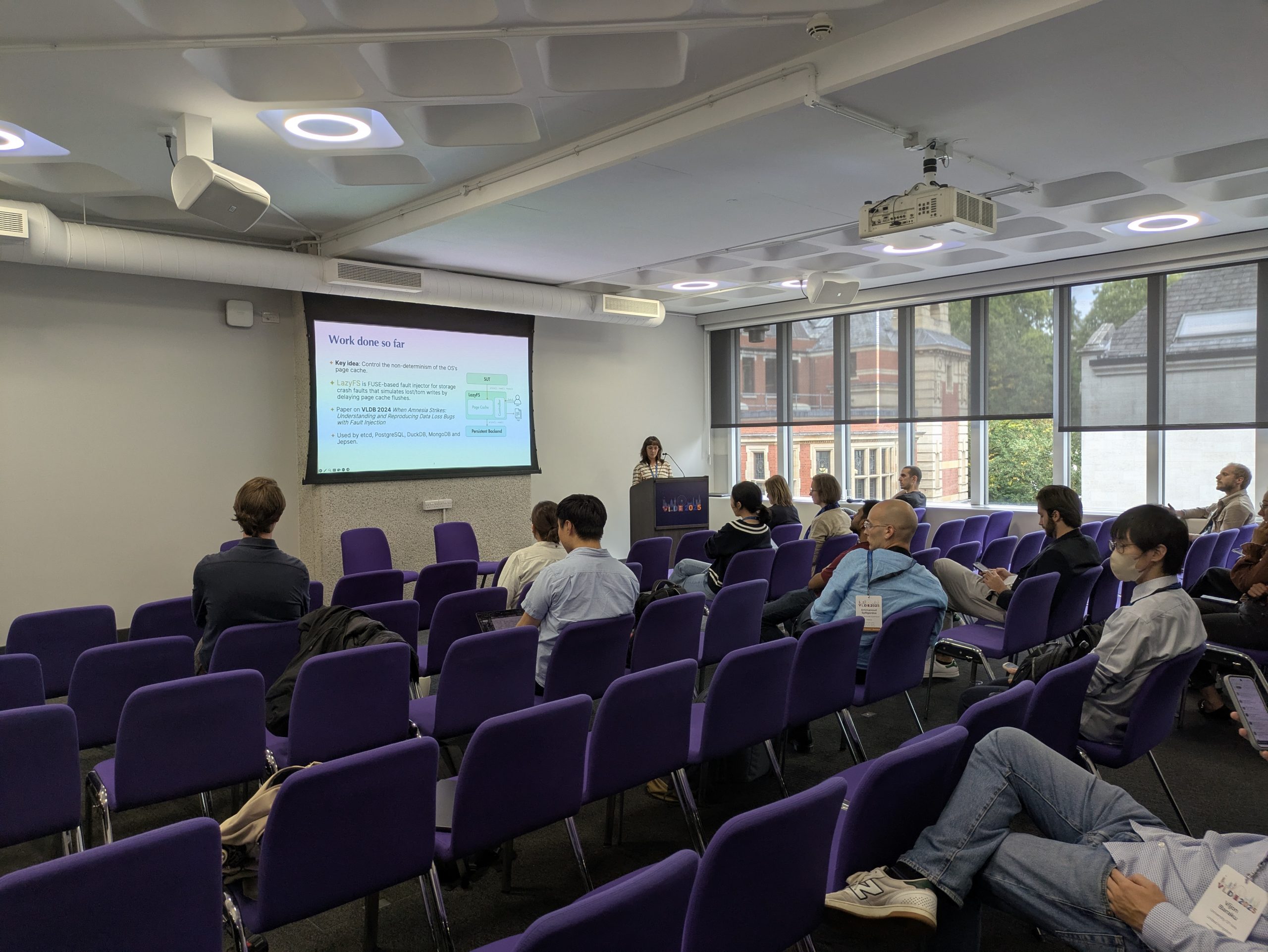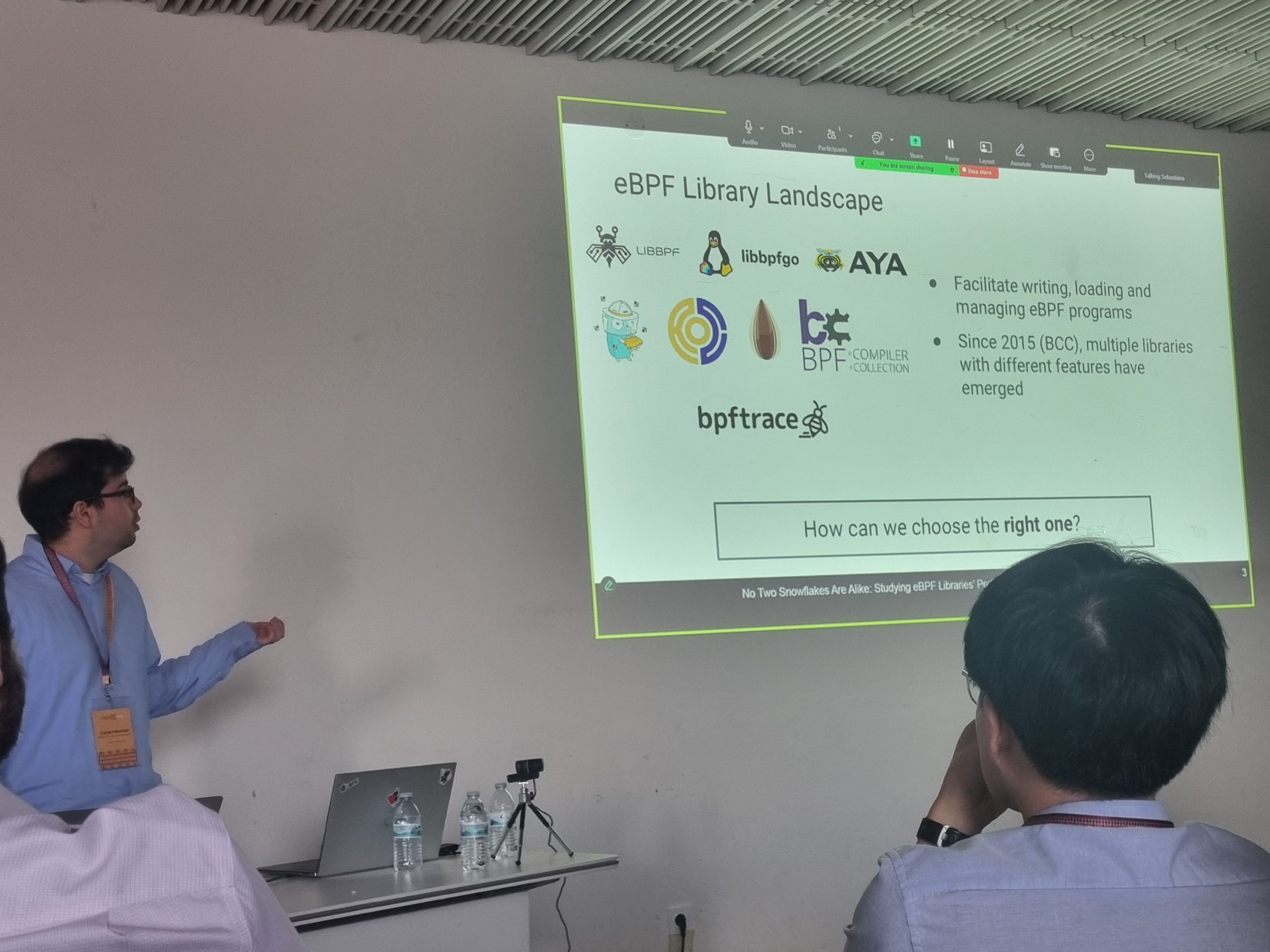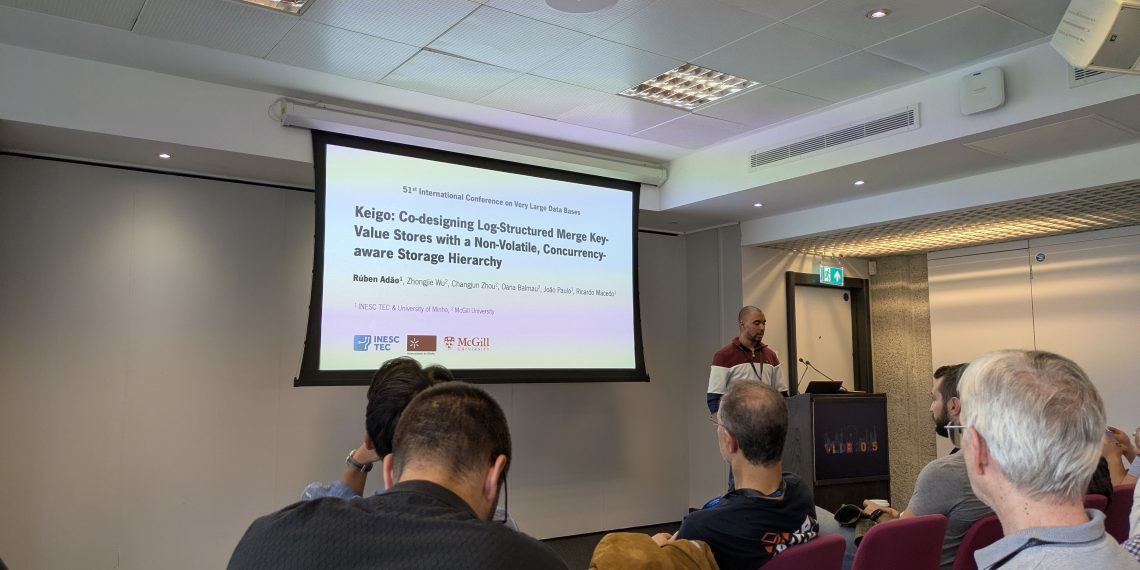Last month, the Institute participated in two of the most prestigious international conferences in databases and networks – VLDB and SIGCOMM. The researchers brought to the international debate new frontiers in storage, fault tolerance, and operating systems.
The 51st edition of the VLDB – International Conference on Very Large Databases (VLDB) took place from 1 to 5 September, in London; during the event, INESC TEC presented the paper “Keigo: Co-designing Log-Structured Merge Key-Value Stores with a Non-Volatile, Concurrency-aware Storage Hierarchy.” The work introduces KEIGO, an innovative storage system that proposes a new way of managing and storing information in data centres, maximising the performance of modern hardware.
The research, developed in collaboration with McGill University, addresses one of today’s greatest computing challenges: making the most of non-volatile memories (NVMM), which are extremely fast devices but complex to integrate. KEIGO is presented as a smart and non-intrusive solution capable of automatically optimising the distribution of files across different types of storage, balancing performance, capacity, and parallelism.
“The results show significant improvements over both generic and even specialised solutions,” highlighted Rúben Adão, INESC TEC researcher in storage systems and co-author of the paper. “This approach brings us closer to a new generation of storage systems capable of combining the best of modern hardware with intelligent software,” added the researcher.
Also at VLDB, and as part of the PhD Workshop, INESC TEC presented the paper “Assessing the Fault Tolerance of Data-Centric Applications”, which explores new methodologies for assessing fault tolerance in critical applications. The work includes the development of the LazyFS tool, capable of injecting faults and reproducing data loss bugs, previously presented at the 2024 edition of the same conference.

At the ACM Special Interest Group on Data Communication (SIGCOMM) conference – and during the 3rd edition of the Workshop on eBPF and Kernel Extensions (eBPF’25) -, another INESC TEC team presented the study “No Two Snowflakes Are Alike: Studying eBPF Libraries’ Performance, Fidelity and Resource Usage”. The paper provides a systematic evaluation of five eBPF libraries, analysing their performance, efficiency, and fidelity, contributing to the understanding of the trade-offs of each library when using eBPF for operating system observability.

“We showed that no two libraries are the same. Each one presents distinct trade-offs and variable behaviours depending on the usage scenario,” explained Carlos Machado, INESC TEC researcher in operating systems.
The eBPF technology has been gaining interest both in academia and industry, and is now widely used by companies like Google, Meta, and Netflix in areas ranging from system security and monitoring to network optimisation. INESC TEC’s study contributes to a more informed and efficient large-scale use of these tools.
With these contributions, INESC TEC reinforces the institutional position in international research in distributed systems, data storage, and operating systems, demonstrating the ability of Portuguese science to innovate and influence global practices in critical digital infrastructures.
The researchers mentioned in this news piece are associated with INESC TEC and UMinho.


 News, current topics, curiosities and so much more about INESC TEC and its community!
News, current topics, curiosities and so much more about INESC TEC and its community!